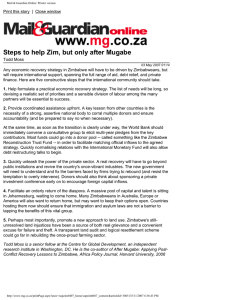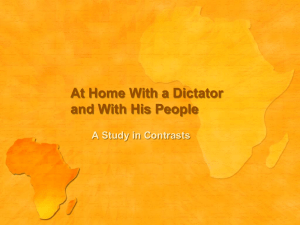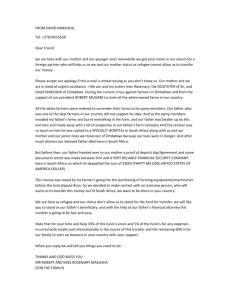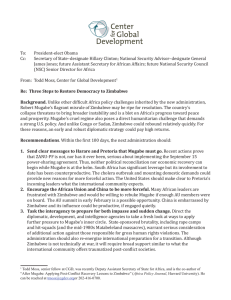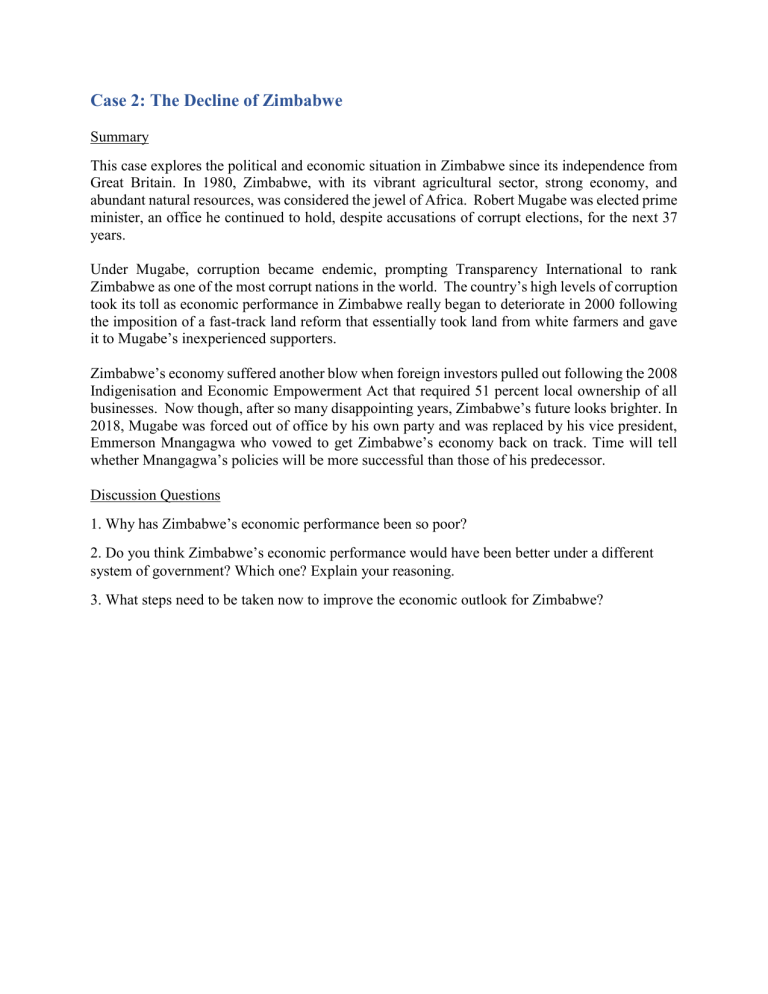
Case 2: The Decline of Zimbabwe Summary This case explores the political and economic situation in Zimbabwe since its independence from Great Britain. In 1980, Zimbabwe, with its vibrant agricultural sector, strong economy, and abundant natural resources, was considered the jewel of Africa. Robert Mugabe was elected prime minister, an office he continued to hold, despite accusations of corrupt elections, for the next 37 years. Under Mugabe, corruption became endemic, prompting Transparency International to rank Zimbabwe as one of the most corrupt nations in the world. The country’s high levels of corruption took its toll as economic performance in Zimbabwe really began to deteriorate in 2000 following the imposition of a fast-track land reform that essentially took land from white farmers and gave it to Mugabe’s inexperienced supporters. Zimbabwe’s economy suffered another blow when foreign investors pulled out following the 2008 Indigenisation and Economic Empowerment Act that required 51 percent local ownership of all businesses. Now though, after so many disappointing years, Zimbabwe’s future looks brighter. In 2018, Mugabe was forced out of office by his own party and was replaced by his vice president, Emmerson Mnangagwa who vowed to get Zimbabwe’s economy back on track. Time will tell whether Mnangagwa’s policies will be more successful than those of his predecessor. Discussion Questions 1. Why has Zimbabwe’s economic performance been so poor? 2. Do you think Zimbabwe’s economic performance would have been better under a different system of government? Which one? Explain your reasoning. 3. What steps need to be taken now to improve the economic outlook for Zimbabwe?
